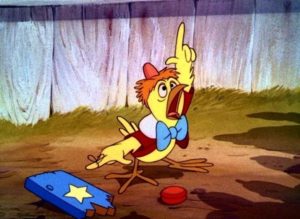By Nancy Black
Fire Season? That’s weird. When I was growing up, we only had four seasons, and not one of them was called “fire.” Spring, summer, fall and winter. That’s what we called the predictable changes in the weather systems each year. It’s been a long time since we’ve seen those four seasons. Why? It is called climate change. Yes. I wrote it. Because it IS real.

We are not on the brink of disaster. We are IN a state of disaster. Rising sea levels, floods, droughts, record shattering heat. Oh, yeah, and let’s not forget about the continent of Australia, much of which is currently engulfed in flames.
When I heard the numbers of all the wildlife that have been destroyed by those raging fires, I was astounded by the gravity of the situation. More than 500 MILLION animals have been killed SO FAR!
According the Association of Zoos and Aquariums, there are approximately 800 THOUSAND animals currently in American zoos. That includes 6,000 different species and 1,000 threatened endangered breeds. Imagine if every animal in every zoo in the United States burned up; died by raging fire. Then multiply that number by 625.
How can we help a country so far away? You can certainly donate money to a recognized rescue effort. Financial support will help those fighting the apocalyptic flames replenish the necessary supplies needed to continue their valiant efforts. The Australian Red Cross (redcross.org.au), The Salvation Army (salvationarmy.org.au) and the St. Vincent De Paul Society of Australia (donate.vinnies.org.au) are all respectable organizations helping those who are fighting and have been affected by the bush fires.
Another way we, as a collective group of neighbors and communities, can do our own part in fighting climate change is to stop wasting — everything! From water and food, to fossil fuels and electronics, we consumers use too much of them. My garage alone looks like an old electronics graveyard. We have dozens of halogen light bulbs, a box full of dead batteries, four ancient TV remote controls, three obsolete cell phones, two outdated laptops and a partridge in a pear tree (a vintage iMac).
All those items are filled with toxic materials. If they are not disposed of properly, those toxins will seep into our soil and water, damaging animal and plant life. While not directly impacting Climate Change, protecting our environment from toxins is part of taking care of our planet. So, what should I do with all my electronic trash? Surprise! The City of Dallas offers FREE electronics recycling.
By visiting greendallas.net, consumers can pick from one of four locations where they can “stop, drop and go” with their old computers and TVs. As for dead batteries, citizens need to take them to the Dallas County Home Chemical Collection Center on Plano Road. In addition to batteries, they also accept old paint cans, oil and antifreeze.
Taking the time to do my part to care for this area of the planet, here in Dallas, may not seem like it’s helping the Australians right now. But we all need to contribute in many different ways if we are going to make a change. Won’t you join me in taking the time, too?
